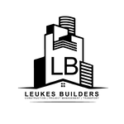Advice for first time home buyers
First-time home buyers frequently have a lot of questions, many of which are challenging to find the right answers to. A few of the most frequently asked questions have been reviewed, and the topics we addressed are listed below.
What can you afford?
Below is a link to their website for the home loan calculator.

What should my credit score be?
According to other online articles, in South Africa, 640 is the required minimum credit score for a mortgage. You’ll have a decent chance of getting a home loan if your credit score is at least 600, though your chances may differ depending on the bank you choose. Your likelihood of being approved for a home loan is greatly increased by a score of 670 or higher, which is regarded as excellent.
Here is a link to Mortgage Market’s article that explains it in greater detail.
Making an offer to purchase
The first step in buying your dream home is to sign the offer to purchase, a contract between you and the home seller that outlines the requirements that must be satisfied before the home sale can proceed. To make sure you haven’t missed anything crucial, it may be helpful to review the agreement with an estate agent or lawyer at this point. Make sure the contract requires the seller to perform a home inspection and notify the buyer of any flaws.
Will there be a deposit?
You will normally need to put down a deposit for the property. Though you have the option to raise it, the typical range is 10% to 20% of the total cost of the purchase. The bank will be more likely to approve a loan for the balance of the purchase price if your deposit is higher, and the interest rate on that loan will also be lower. An alternative for first-time homebuyers is a 100% mortgage.
Obtaining the funds necessary for a deposit may be difficult for many first-time buyers. Fortunately, many banks are assisting first-time home buyers by providing a 100% mortgage. As the name implies, there is no need for a deposit because this loan is fully funded by the bank.
Applying for a home loan through the banks
A bank loan, also known as a home loan, will typically be used by many home buyers to finance their purchase. Probably the most significant step in the process is applying for a home loan at a bank.When visiting the bank, remember to take with you the following documents and information: Some banks might require more documents.
- South African ID
- Latest payslip/s
- List of monthly expenses
You must collect the information and supporting documentation from each party if you are applying for a jointly owned account.
The home loan is approved. What now?
You can now buy a home with confidence thanks to your home loan approval, which is a significant load off your shoulders. However, the process of purchasing a home is not over yet. There are still several legal requirements, including:
- Bond registration: The bond will be registered in the buyer’s name through the appointment of a bond attorney by the bank. The buyer will be required to sign paperwork and foot the bill for the bond attorney.
- Bond transfer: To transfer ownership of the property to the buyer, the seller appoints a conveyancing attorney. The purchaser is responsible for paying both the transfer fees and the transfer duty, which is a tax paid to SARS (although this is only payable on properties worth more than R1 000 000).
After the home loan is approved, the process of bond registration and transfer typically takes three months. When it is finished, the title deed to the property will have been registered in your name, though it will continue to be in the bank’s possession until you have repaid the mortgage.
